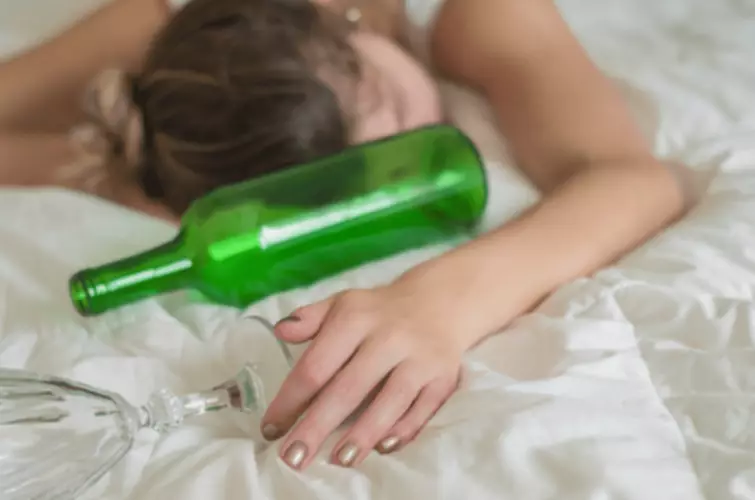Content
Normally when you encounter a threat, your nervous system activates. The hormone adrenaline shoots into your bloodstream, putting your body on high alert. Your heartbeat quickens, supplying your muscles with more blood. The body has a natural response when you’re stressed or in danger. It speeds up your heart, makes you breathe faster, and gives you a burst of energy.
Anxiety is a common mental health issue that affects millions of people worldwide. It usually causes the body to go into fight-or-flight mode and elicits symptoms like feeling tired, having trouble sleeping or concentrating, and headaches. Here are steps you can take to decrease the number of panic attacks you have.
Surprising Ways Alcohol Affects Your Health — Not Just Your Liver
This study also revealed that heavy drinking increases one’s anxiety disorder risk. Benzodiazepines, often called “benzos,” are a type of medication that help calm your mind and relax your muscles during times of high anxiety. Benzodiazepines belong in the category of Anxiolytics, which is a type of anti-anxiety medication.

While anxiety is a general term, there are different types of specific anxiety disorders. They include generalized anxiety disorder, social anxiety disorder, and panic disorder. Though alcohol can curb anxiety disorder for a while, its long-term effect may exacerbate one’s anxiety, no matter the type of anxiety disorder. It seems like drinking alcohol is a common way to unwind and de-stress but is it safe? Many people are not aware that alcohol misuse can lead to an increased risk of anxiety and panic attacks. And Mr. B had experienced their first panic attacks 1 month after abrupt cessation of alcohol abuse.
The Science Behind Alcohol Abuse
Before delving into the relationship between alcohol and anxiety, it is first vital to understand what anxiety is and why we feel it, as well as when it becomes a disorder. PAWS should be closely watched, as it can pose a threat to recovery. If the symptoms, such as extreme anxiety, become too unbearable it can cause a relapse.
Is drinking a coping mechanism for anxiety?
You might think that alcohol helps you cope with stress, but it is not a good coping mechanism, as it is known to increase the symptoms of panic and anxiety disorders, depression and other mental disorders, and the risk of family and domestic violence.
It’s also possible for a first panic attack to be caused by a drug reaction or a reaction to nicotine or caffeine. Panic attacks can be scary https://ecosoberhouse.com/ and so bad that they get in the way of your daily activities. Treatment can help most people have fewer symptoms or even stop the attacks.
What Exactly Is Anxiety?
In fact, anxiety and other mental health diagnoses, like depression or childhood trauma, increase the risk of developing AUD. Anxiety, therefore, acts as a vulnerability to the development of an alcohol use dependency. For example, anxiety attacks after drinking alcohol are due to its negative effect on GABA, which is naturally a relaxant, b the reaction to alcohol causes increased tension and panic feelings.
Benzos are typically a short-term treatment of anxiety and are often prescribed to people who experience frequent panic attacks. They are usually not recommended to be used long-term because of their addictive nature and the increased risk of side effects like difficulty with memory and balance. The most common brands of benzos are Xanax (alprazolam), Klonopin (clonazepam), Ativan (lorazepam), Valium (diazepam), and Chlordiazepoxide (Librium).
“By drinking alcohol, people aren’t giving themselves a chance to do that,” says Morgan. If heavy drinking has been your lifestyle and you’ve started struggling with feelings of anxiety, you might be worried about the potential stress of alcohol withdrawal symptoms. Don’t let that stop you — there may be a co-occurring disorder treatment center in your area. These centers specialize in addressing both substance abuse and mental health needs at the same time. People who have panic anxiety disorders get severe panic attacks as a response to a stressful situation. Typically, such people will experience sweating and shaking when they have panic attacks.
They may continue to hyperventilate or have trouble catching their breath. They may even experience body pain after a panic attack due to physical tension. Also called an adrenaline hangover, a panic attack hangover refers to the symptoms you experience after your adrenaline levels go back down. During panic attacks, your adrenaline level spikes, increasing alertness and energy while sharpening your reflexes, so your body is prepared to either fight or run. However, once the perceived threat is gone and your symptoms have dissipated, you may be left feeling tired and even sore.
How to Manage Anxiety in Early Recovery
Although recovering from an anxiety attack can take time, it is possible. Below are some simple ways to deal with the after-effects of a panic attack that may help you the next time one occurs. We offer treatment services no matter its substance abuse disorder or mental health difficulties. We provide several treatment programs according to your specific needs at prices our clients can afford.
- A person with a social anxiety disorder may become nauseous or dizzy any time they are in a social situation.
- Our mission at Eleanor Health is to help people affected by addiction live amazing lives.
- It is a mental health disorder that causes a debilitating fear of social encounters.
- Despite this lack of clarity, it seems that there could be a relationship between the two.
You could find social circumstances to be intolerable if you have social anxiety. Alcohol use is widespread among those with social anxiety disorder as a coping mechanism for social situations. You will learn about alcohol abuse, anxiety symptoms, and how the two panic attacks and alcohol disorders frequently co-occur. This article will discuss a few techniques to relieve your symptoms if you have alcohol-induced anxiety or a panic attack. Certain medications have some ugly side effects — and can cause anxiety symptoms or an anxiety attack.
Generalized Anxiety Disorder
You may fear having panic attacks so much that you avoid certain situations where they may occur. The doctor will listen to your heart and check your blood pressure. You may get blood tests to check for other causes of your symptoms. The doctor may need to rule out other health conditions that have symptoms that are similar to panic disorder, such as a heart attack or hyperthyroidism.

